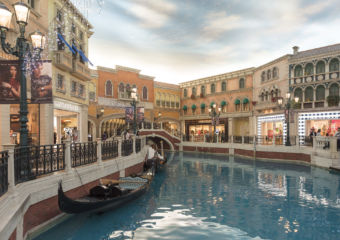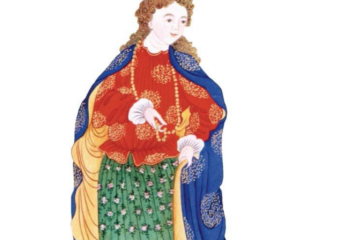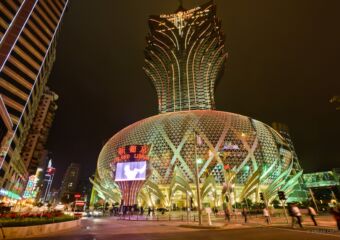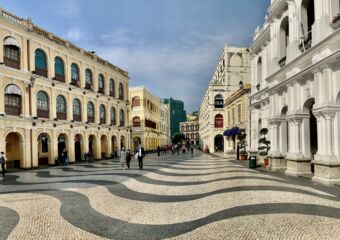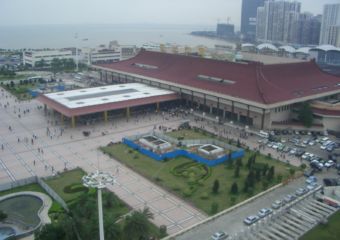Featured image: Hac Sá Long Chao Kok, Coloane
Macau, more than 60 kilometers west of Hong Kong, was first settled by the Portuguese between 1555 to 1557. In this short yet comprehensive history of Macau, find out why the Portuguese came to the Far East and how they peacefully settled in Macau with unspoken Chinese goodwill–in contrast to British military maneuvers in Hong Kong.
Follow Macau’s golden age from 1557 to the disastrous collapse of 1641, followed by the late 18th century when the British in Macau were a law unto themselves until Hong Kong’s foundation and the opening of Shanghai–creating wider scope for their energies. Portugal subsequently struggled to obtain full sovereignty in Macau, but these designs were brought to a close in 1975 when a new chapter opened in the territory’s history.
Macau history, Let’s start from the beginning…
First settlers: The Fishermen of Fukien
Centuries before the first Westerners arrived at what we now know as Macau, it was said that the first dwellers arrived by boat from Fukien (Fujian, China). The first of them had been caught in a typhoon and driven far from their familiar fishing grounds. Being in peril, they offered prayers to Ma Cho or “Ancestral Grandmother”, patroness of seafarers.
The Fujianese reached land at a sheltered spot where their ships found safety. In gratitude they built a shrine to Ma Cho, believing she had personally saved them. The shrine was later enlarged into a temple, named in Fujianese “Ma Cho Kau”, or “inlet of the ancestral grandmother”. Its abbreviated form “Ma Kau”, which later became the city’s name.
Arrival of the Europeans
The first Portuguese to touch the coast of China at the Pearl River in 1513 was Jorge Alvares, who was on a mission to find out what he could about the Chinese and possibly open trade. He saw several islands–some uninhabited, some used by fishermen and pirates. There were villages where the land was flat enough for rice fields surrounded by hills. The region was neglected at the outermost edge of Chinese civilization.
The Europeans found a strip of solid ground separating the delta from the Pearl River’s broad estuary–a convenient anchorage with a choice of two natural harbors in a fine bay facing the water. Upon their arrival, there were two Chinese temples in the irregular chain of low hills–both survive to this day. The northern one is Buddhist dedicated to Kwan Yin, the Goddess of Mercy in a Chinese village called Mong Ha. The southern one at the foot of the peninsula is the aforementioned fisherman’s temple Ma Cho Kau that gave the city its name.
The first letter sent from Macau was written and sent in 1555, signifying the birth of the Portuguese settlement.
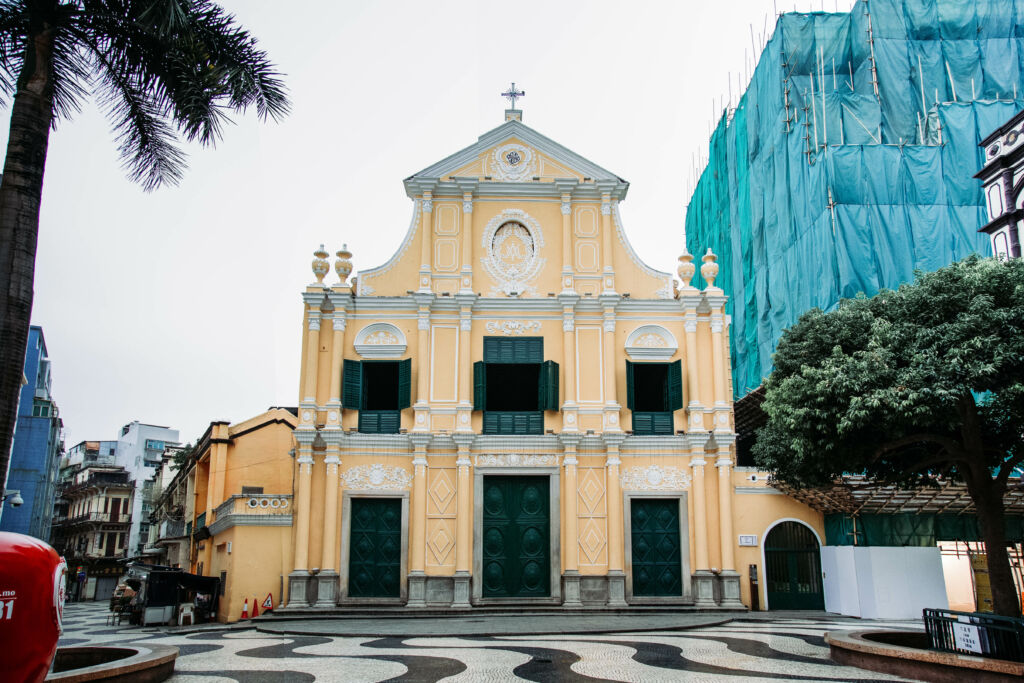
St. Dominic’s Church
16th century: Portuguese Macau
The Europeans were said to have received Chinese permission to settle in Macau as reward for their effective suppression of pirates in the region using heretofore unseen firearms. The area was gradually occupied by Portugal after the mid-16th century from 1553 to 1849. They lived on rented land in the first 20 years and leased the land in the remaining 276 years.
The city grew rapidly with Chinese and Portuguese mutually benefiting from a coexistence. The able and industrious Fukienese community assured the Portuguese of good fish supplies, fresh water, and a ready source of skilled carpenters, boatbuilders and ship repairers. By 1565 there were two churches with their congregations in the hundreds and more religious buildings and houses going up constantly.
Trade flourished between Japan, China, and Europe, causing Macau to grow rich and prosperous sitting at their crossroads. Its golden epoch lasted from 1557 to the end of Japan trade and the fall of Portuguese Malacca in 1641. In 1601, the Dutch set their sights on Macau which had a monopoly on trading Chinese silks with the Japanese. This triggered the erection of the forts on Barra Hill and the fortress walls of Mount Fortress to defend against the Dutch advance.
In 1622 the Dutch attempted invasion, which was repelled by a small population of lay, cleric, free and slave men and women whilst the larger merchant and naval population were abroad. The small triumph was ephemeral, however; the golden epoch was approaching its end.
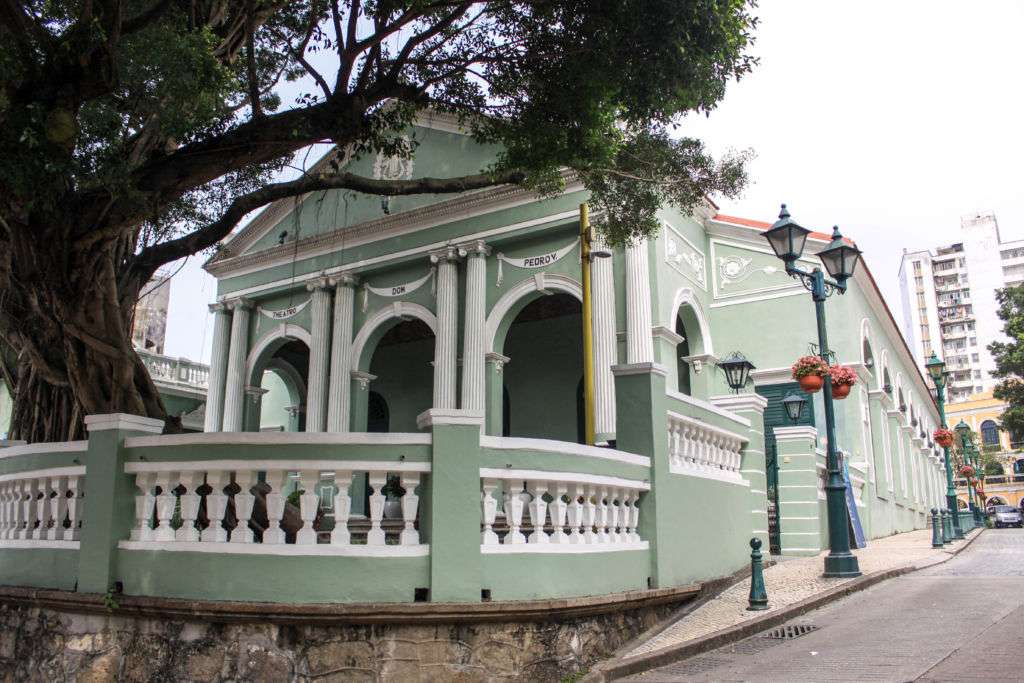
Dom Pedro V Theatre
17th century: A Pan-European Outpost
In the mid-17th century, Macau’s trade with Japan ended following the Shimabara massacre, which extinguished the open profession of Christianity in Japan. The country, ruled by the third Tokugawa shogun, then settled down to more than two centuries of isolation from the rest of the world. Without Japanese silver to sell to the Chinese, Macau’s trade with China ended as well. Malacca also fell to the Dutch, bringing Portuguese Asia to ruin.
Sixty years of deterioration ensued, impoverishing the city and bringing it close to extinction. British trade with China began from 1700 onward, bringing some improvement in Macau. In the 18th century, European trade with China through Canton rose steadily, led by Britain.
After the relaxation of restrictions against foreigners in 1757, Macau entered upon another remarkable period, becoming the outpost of all Europe in China. It acted as the center and fulcrum of foreign relations with China for more than 80 years until 1841 when Hong Kong was founded. Shanghai and other treaty ports were also opened to foreign residence, and a new era began.
Also Read: Historic Women in Macau: Empowering Communities Across Time
19th century: Post Opium Wars
João Maria Ferreira do Amaral took office as Governor of Macau in 1846 and was instructed to assert Portugal’s sovereignty in the settlement. After three years of nursing relations among the Europeans on this side of Asia, he was assassinated by the Chinese in 1849. His death provoked horror and sympathy among the entire foreign community on the China coast, leading to the joint efforts of American, British, French and Spanish forces to end Chinese interference in Macau for more than a century.
Also Read: Macau Epidemics Through Time: From the Black Death to Leprosy
Rise of gambling and the Sino-Portuguese Treaty
In the mid-19th century, Macau saw its best governors–Captain Isidoro Francisco Guimarães and his successor Coelho do Amaral. In 1844, Guimarães introduced what has become the most widely known feature of contemporary Macau–licensed gambling. The innovation was successful from the outset, financially as well as in terms of public order. The old unlicensed gambling houses were phased out and there was an improvement in the apprehension of criminals.
In Hong Kong, Queen Victoria’s ministers viewed the same as out of the question, leaving Macau free rein to become the “oriental Monte Carlo”. Its licensed fantan saloons were frequented by all nationalities, including large numbers of weekend holidaymakers from Hong Kong.
When José Rodrigues Coelho do Amaral took over as governor in 1863, the civil engineer improved the city in many ways. He also saw the long-desired Sino-Portuguese treaty become a reality, but only because this suited British interests in the region; In terms of blocking aggressive French expansion and maintaining an unthreatening entity to help control the opium trade.
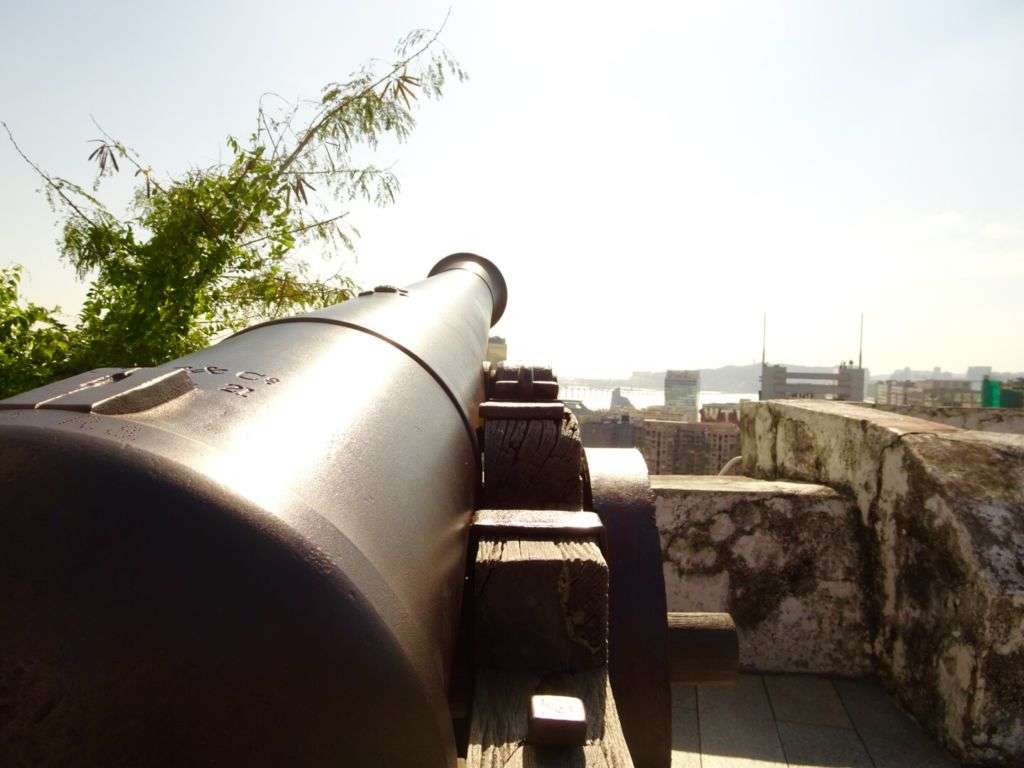
Guia Hill
20th century: World War II
Macau helped untold thousands of Hong Kong people reduced to destitution and starvation during WWII. Throughout the 20th century, the city had to sustain tidal waves of refugees. Many Europeans normally residing in China sought refuge in Macau during the Boxer rising of 1900 and anti-foreign movements that marked the rise of the Kuomintang to power in China (1922–1927). Chinese refugees arrived in 1938 when the Japanese invaded southern China, and then again when they captured Hong Kong in 1941.
Portugal reserved neutrality in WWII yet Macau’s Governor, Commander Gabriel Teixeira, risked sheltering refugees from British Hong Kong. Macau’s doors were opened to all corners in a gesture of unselfish friendship, made in Portugal’s traditional style. The city managed to survive history’s most difficult period and after the war, with equal goodwill, it went out of its way to provide leave and rest centers for the great numbers of Allied troops in the Far East.
“No one who experienced Macao’s hospitality during these years would ever forget it,” once said Austin Coates, a former senior British civil servant in Hong Kong, Malaya, and Sarawak.
Modern era of Macau history
The Portugal revolution of 1974 saw Portugal divesting itself of its colonies; strangely enough, however, China informed Lisbon that it wanted Macau to remain as it was. For the story’s continuation, click here to read about Macau’s return to China.
What did you think of this short history of Macau? Want to find out more about Macau history? Read 5 Ways Macau Has Changed in the Last Decade to discover what happened after the handover in 1999.
Source: A Macao Narrative by Austin Coates published by Hong Kong University Press


